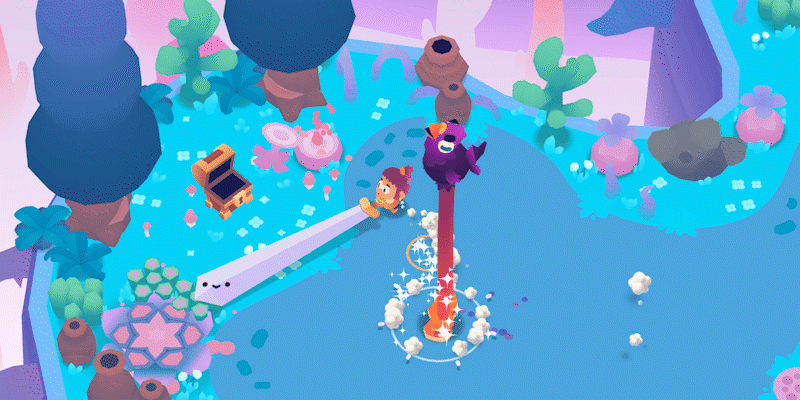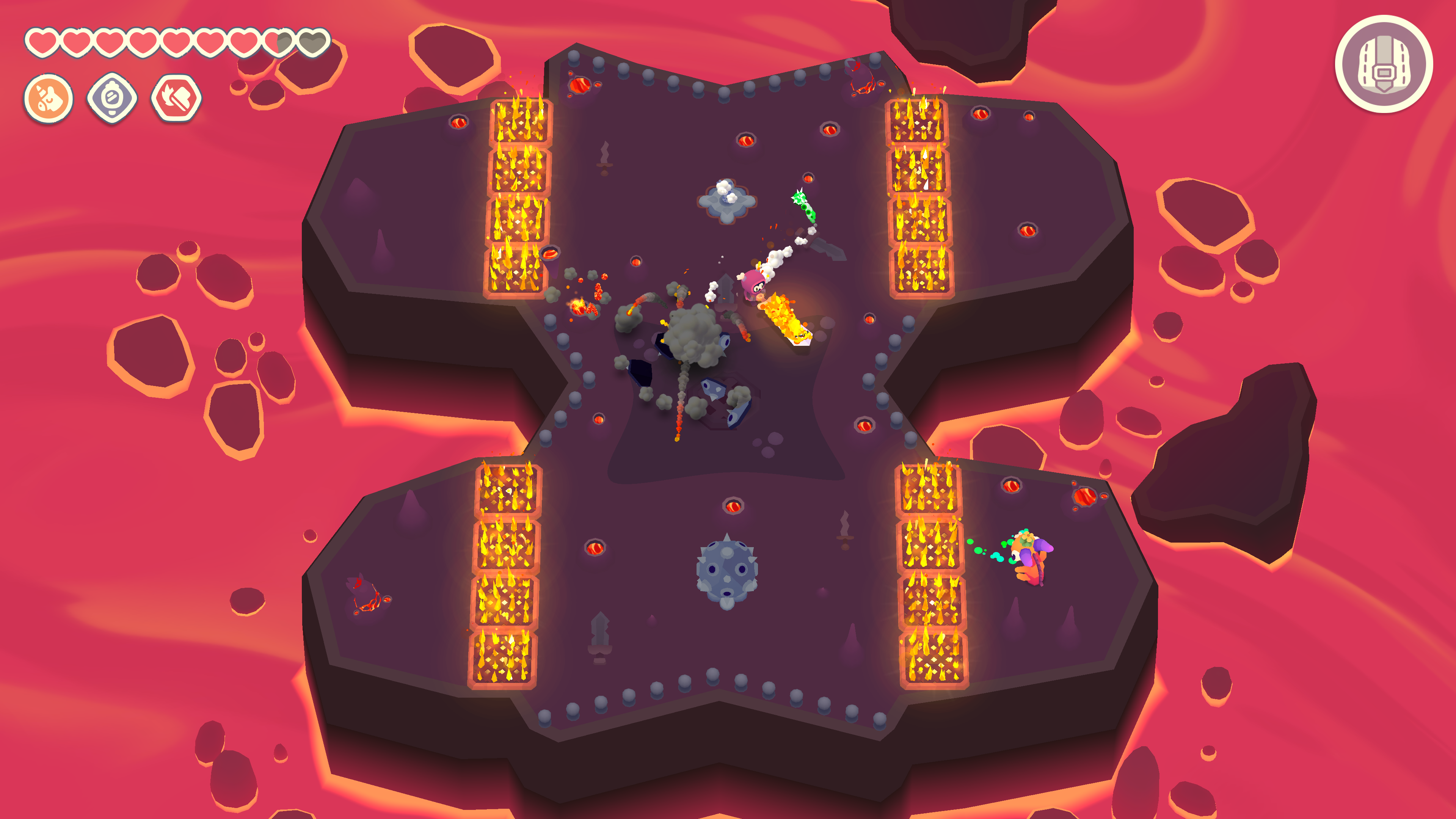Slash Quest
No sword is too big to handle for this unlikely knight
Although as an fully adult human I understand why exclusive games exist and how it still is and will always be a way of getting funding, I'm always sad when a title is behind a service or a platform, specially when it's not tied to a specific control scheme. Of all the subscriptions we have today, the one I most ignore is the Apple Arcade, because I don't have an iOS device or a Mac, so I need to wait the games to break free from their monochrome prison to enjoy them.
The last one going out was Slash Quest, released originally in the service in 2020 but it was only now being live on Steam. It was actually created by two Brazilian dev teams during a game jam — Big Green Pillow (from 2015 multiplayer Porcunipine) and Mother Gaia (from the awaited Posthumous Investigation) — and I was really excited to see what all of those people could do together.
Spin and grow
Slash Quest tells the story of Shepherd, a little farmer boy that finds a magical talking sword called Swordie (!) and goes on a quest to find the blade's missing queen in a world full of monsters. From the start, the charisma from those two characters (and, to be fair, the whole cast after them) got me totally engaged with the game, even more than the plot itself. It's so cool how Shep is naive and only "talk" using emojis, but Swordie can't stop speaking about how it is a royal weapon and must be treated as such.

It's impossible to start a review about Slash Quest without talking about controls. The whole idea here is that Swordie is the "hero" of the adventure and Shep is just going along to move it. Instead of just using a directional input, you use the shoulder buttons (or the analog stick) to spin Swordie in a circle and a button to make Shep run forward. It feels like old tank controls, but more fluid, dynamic and a little bit slippery.
Almost all of the fun in the game is understanding how to control the duo, what makes even some mundane levels into something worth of trying. Another really satisfying aspect of this movement is there's a lot of destructive elements in the scenario, so even you fail to move them in a straight line, you still feel good cutting trees and signs while listening them pop like a bubble.

The "magic" behind Swordie, besides not being able to stop brag about itself, is the other gameplay gimmick of Slash Quest. Although the blade feels small when you start a stage, Swordie gets bigger for every enemy you kill, at the point it can actually kill all enemies in the screen in just one rotation. Although it adds to the controlling challenge — every time you crash into a stone, you lose a bit of size — there's not a lot of uses for this besides the simple combat parts.
Cutting layers
Slash Quest's main story is, to be fair, relatively easy, but not in a bad way. You have 16 levels and 4 bosses, split in 4 worlds with some generic themes, like "the lava one" and "the ice one". The moments change between small combat arenas and some puzzles that requires using Swordie itself — like pushing levers to open paths or put the blade on fire to burn obstacles. The progression is linear and, besides getting in a bit of trouble to solve some challenges in the last world, it felt more like a cozy adventure, perfect to relax after a day of work.

But rushing out to finish a Slash Quest level is the worst thing you can do. The best part of playing is trying to find extra paths and treasure chests that give you gems to personalize the duo (or money to buy and upgrade other gems). There are some passive and active abilities that can be useful on combat, but 80% of the unlockables are customization options for Shep's outfit and Swordie's swoosh trail. Every stage has at least six chests and some of them are actual cool challenges to overcome, specially if you think the main story feels lackluster.
If you still need one more step on complexity, Slash Quest still has a lot of extra challenges to be played that will require a lot of mastery of Shep, Swordie and the strange controls. Some are high scoring minigames, but some of them are hard tasks to be done in special maps, like surviving a specific amount of time with too much enemies in the screen.

Although the prize for finish them were even more customization — including some seasonal event ones, I got a lot of sport gear because of the Olympics —, it's definitely not cozy as the story levels and I didn't engaged that much with them (besides the reflective arrow minigame which is really cool). That said, I can see how many people will love this more than the rest of Slash Quest content for sure.
Without cutting out (!) too much details, I really enjoyed my time in Slash Quest. It's a nice package of mechanics and charisma that isn't always spectacular, but knows how to utilize its gimmick well enough to create a fun, engaging and really cute adventure, with a lot of layers that allows players to choose how much they want to go deep in the game without blocking progression. I really happy this snobbish sword is finally free to have quests outside the Apple realm, and if you just want a cozy time with it, I just ask that you hold on tight and take your dizzy medication....